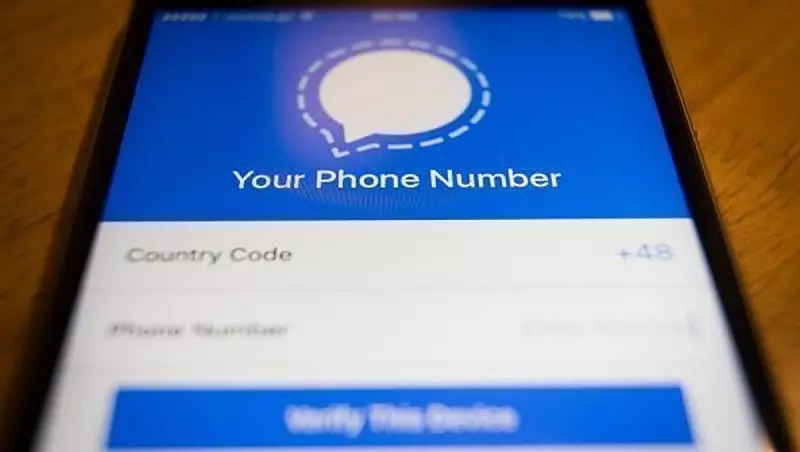Your Phone Number is Out There? What Can Someone Do With Your Phone Number
Table of Contents
- By David Lukic
- Published: Mar 23, 2021
- Last Updated: Dec 05, 2025
With the steady flow of data breaches, your cell phone number is probably out there in the wild and on the dark web. Scammers use cell phones for various scams and fraud. The question is, what can you do about it?
The Risk of Giving Out Your Cell Phone Number
Just about everyone these days has a cell phone, and it has become intrinsically linked to our identity. Identity thieves are always searching for new ways to get your information and use it for identity theft or fraud.
The most significant danger of handing out your mobile device number is that it could fall into the hands of a cybercriminal and steal information from cell phone. With so much information available in public records and sold on the dark web from data breaches, your cell phone number could link you to a lot of other personal or sensitive information like logins, usernames, passwords, and more.
SMS Insecurity
A lot of apps are linked to your cell phone number also. Using two-factor authentication is great and keeps things safer, but if you have compromised phone number, then hackers have the keys to the kingdom. Some SMS systems are insecure and hackable. Therefore, someone would potentially get that special code that is texted to you from an app, and they could log into your account and change the password before you even realize what is going on. It's crucial to use end-to-end encrypted SMS platforms for all your communications.
SIM Swapping
SIM swapping is another danger where nefarious criminals use SIM cards linked to your phone to steal access to your phone number and carrier account. Many people now rely on eSIM for travelers, which can reduce some of the risks associated with physical SIM cards. This type of danger is very real and scary and usually involves social engineering to trick the phone company representative. By having your cell number, a scammer could trick caller ID systems and get into your financial accounts or call financial institutions that use your phone number to identify you.
Once the scammer convinces your carrier to port out your number, you may never get it back. Scam porting is a big problem for phone owners.

Can Someone Steal My Phone Number?
Yes. Your phone number is out there on the web in various locations. Scammers can use stolen cell phone numbers and use it for two-factor authentication codes and other access to all your texts, apps, and other online accounts, they could have your cell phone number hijacked and do it through SIM swapping. This is how it occurs:
First, they buy a burner phone and pop a new SIM card into it. They then call your wireless phone carrier and pretend to be you. If the hacker has enough information to convince the person, they may transfer your service and phone number to that blank SIM card and the new burner phone. Now your phone number has been stolen, and you aren't even aware of it. All your texts, phone calls, and 2FA codes will now go to the hacker's phone instead of yours. If you have access to bank accounts and other apps tied to your phone number, they will now have access to that stuff as well. Many location-based systems will think it's you just by the scammer calling from your phone number. If hackers get this far, they can then change all your passwords and lock you out of your own accounts. Very scary stuff.
How Do Scammers Get Your Phone Number?
One of the most common ways scammers get your phone number is through the many data breaches and treasure troves of raw data found and sold on the dark web.
Another way is by picking through your trash and grabbing an old bill with your phone number on it.
Using a people search site, someone could glean a whole lot of information on cell phone numbers, such as any criminal records, past addresses, social media accounts, arrests, warrants, court cases, relatives’ information, and more.
How Much Info Can You Get From a Cell Phone Number?
It's actually quite shocking how much information you can get from just a reverse cell phone number search. The list begins with your name and possibly address. Some other things might be:
- Past addresses.
- Relatives’ names.
- Where you live.
- Your assets and how much you paid for your house.
- All your criminal records.
- Driving records.
- Legal issues (bankruptcy, liens, taxes, court cases, lawsuits, etc.).
- Travel information.
- Social media accounts.
- Other online accounts.
- Email addresses.
- Vital records.
- Deep web and dark web records.
- Mugshots.
- Professional licenses.
- IP address.
- VIN number.

11 Ways How Can Scammers Use Your Phone Number
Unfortunately, the power of your phone number is immense, giving hackers and scammers a lot of options to do bad things. Some of the most common are:
- Access your social media accounts.
- Text message or contact your friends and family to scam them.
- Spoofing your phone number and calling people you know to commit fraud.
- Text phishing messages to your contacts - this is called "smishing."
- Hijack your mobile phone number and take over your digital life.
- Commit identity theft pretending to be you.
- Access your online bank accounts or credit card accounts and take them over.
- Use your number for robocalls.
- Send phishing emails to your email account.
- SIM swap to steal your phone number.
- Access your voicemail.
What Steps to Take if Scammers are Using Your Phone Number
The best way to avoid this cybersecurity disaster is to prevent it from ever happening. However, if you suddenly find that scammers are using your phone number to commit fraud or scam others, you should take these immediate steps:
- Contact your wireless service provider and report the abuse. Ask them to put a secondary password on your account so no one can take it over without the password.
- Let your friends and family know that your number is being used in this way.
- Stop giving your phone number out online and to anyone who requests it.
- Stay clear of websites and apps that link to your phone.
- Turn on two-factor authentication for all your accounts.
- Get a phone number through Google voice which is not linked to anything else.
- Never click on links in texts or email. Malware is often linked to text messages or email.
- Use very strong passwords and never reuse them on multiple websites.
- Use third-party authenticators when you can.
- Update your security questions on all accounts including Gmail.
Do all you can to keep your phone number safe from hackers and identity thieves.
















